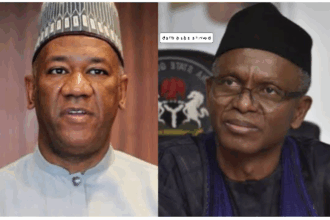The Attorney General of the Federation (AGF) and Minister of Justice, Lateef Fagbemi, has requested for the organized labor to respect the June 5 order issued by the National Industrial Court.
This order restrained both the Nigeria Labour Congress (NLC) and the Trade Union Congress (TUC) from embarking on any industrial action related to fuel subsidy removal and other associated matters.
In a letter addressed to the NLC, TUC, and Femi Falana, Fagbemi stated that the planned indefinite strike by both labor bodies from October 3 would be a violation of the existing court order and a disregard for the dignity and integrity of the court.
ATTENTION: Click “HERE” to join our WhatsApp group and receive News updates directly on your WhatsApp!
The AGF urged Falana to advise his clients to respect the court order and allow ongoing negotiations between the parties involved to address the challenges associated with the fuel subsidy removal.
The AGF highlighted that the proposed strike action was primarily driven by issues related to the removal of fuel subsidy, the increase in fuel prices, and the provision of palliatives and workers’ welfare.
He stressed that a court order remained binding and enforceable until it was set aside, regardless of any party’s opinion on the matter.
The AGF hoped that Falana would counsel the labor unions on the importance of upholding the integrity of the courts and respecting court orders.
He maintained that allowing further mutual engagements would facilitate a holistic and sustainable resolution of all outstanding issues in the overall national interest.
It was said that copies of the letter have also been sent to the Minister of Labour and Employment, the Chief of Staff to the President, the National Security Adviser, the Inspector General of Police, and the Director General of the Department of State Services.
He said:
“The foregoing will afford parties more room for further mutual engagements, for a holistic and sustainable resolution of all outstanding issues on this matter in the overall national interest.”


